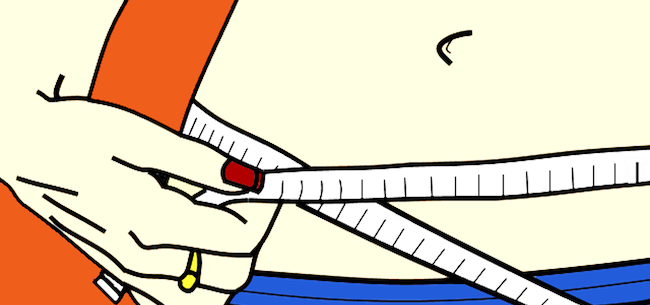Will Losing Weight Really Improve Your Relationship
Will Losing Weight Really Improve Your Relationship
Wednesday, June 27, 2018

Convinced that your relationship would improve if you lost weight? You could be right, but that’s certainly far from the whole story. Losing weight can have many different effects on your personal life.
To get a sense of how weight loss might change things, think about your relationship from these three perspectives:
View of yourself: For many people, losing weight helps them to generally feel better about themselves and to feel more sexually attractive. These more positive self-perceptions can help you to take in the love offered by your partner, as well as to express or assert yourself more in your relationship. Some people become curious about testing out their attractiveness outside their relationship by flirting with others or even having an affair.
You may also notice that even without prompting, people outside your relationship treat you differently. This might feel good, or you might be uncomfortable with the attention. If you struggle so much with this that you find yourself eating more or curtailing your exercise so that you gain weight back, consider seeking help from a therapist. This is especially true if you have a history of having been sexually abused or raped, as many people with this history try to protect themselves (often unconsciously) by putting on extra weight.
View of partner: Your partner may be proud of you for taking steps to lose weight; and for actually losing weight. They may feel personally and sexually more attracted to you. However, contrary to cultural preferences, you partner may find the weight loss less sexually attractive. Or, your partner may fear that you will look elsewhere, for someone “better,” and so may also respond with increased jealousy.
Relationship dynamics: As mentioned above, people often gain confidence and assert themselves more when they lose weight. As a result, their relationship may thrive – with both the person and their partner appreciating the growth. Or, their partner may feel threatened by the positive changes. If this happens, it’s essential that the two of you talk this through. Good communication, including support and encouragement from both you toward each other, can go a long way toward resolving the tension.
Interestingly, these suggestions about the potential effects of weight loss on relationships are supported by a study published this year. It found that people in committed relationships who underwent bariatric surgery had increased chances of divorcing or separating.
Given the many possible ramifications of losing weight, you would benefit from paying attention to how your weight loss affects you, your partner, and your relationship. By being observant, you can then address any problems that arise, increasing your chances of making weight loss an overall gain in your happiness.
Important:
The opinions expressed in WebMD Second Opinion are solely those of the User, who may or may not have medical or scientific training. These opinions do not represent the opinions of WebMD Second Opinion are not reviewed by a WebMD physician or any member of the WebMD editorial staff for accuracy, balance, objectivity, or any other reason except for compliance with our Terms and Conditions. Some of these opinions may contain information about treatments or uses of drug products that have not been approved by the U.S. Food and Drug Administration. WebMD does not endorse any specific product, service or treatment.
Do not consider Second Opinion as medical advice. Never delay or disregard seeking professional medical advice from your doctor or other qualified healthcare provider because of something you have read on WebMD. You should always speak with your doctor before you start, stop, or change any prescribed part of your care plan or treatment. WebMD understands that reading individual, real-life experiences can be a helpful resource, but it is never a substitute for professional medical advice, diagnosis, or treatment from a qualified health care provider. If you think you may have a medical emergency, call your doctor or dial 911 immediately.
